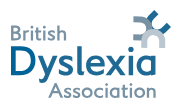Cognition and Learning
Children with Cogntion and Learning needs often learn at a slower pace than their peers, even with appropriare differentiation. Learning difficulties cover a wide range of needs including moderate learning difficulties (MLD), severe learning difficulties (SLD), and Specific learning difficulties (SpLD); which encompasses a range of conditions such as dyslexia, dyscalculia and dyspraxia.
Within the classroom, children with Cognition and Learning needs are supported through a range of Quality First Teaching strategies, resources and evidenced based interventions.
To support your child at home you can try the following:
Please click the links for further information and resources.
 Reciprical Reading
Reciprical Reading
Reciprical reading is a strategy to boost your child's comprehension skills by focusing on questioning, clarifying, summarising and predicting. It is an approach often reccomended by our Educational Pyschologist for parents to use at home.
 Colourful Semantics
Colourful Semantics
Colourful semantics is used to teach grammar skills and help pupils understand sentence structure. It is used to support both verbal and written skills.
 SNIP- Reading and writing programme
SNIP- Reading and writing programme
Snip is a programme to support pupils development of reading and writing key words. It is often used to support pupils with dyselxia. It is a structured programme which should be followed in the suggested order. This is a simple programme to pick up and do with your child at home.
 Working Memory
Working Memory
Working memory is used for reasoning and decision making skills. Your working memory is where you store information for a brief period of time whilst you perform tasks. Pupils with a poor working memory can find it difficult to remember times tables and spellings. This above link will show you some activies to help boost your child's working memory.
 Auditory Processing Skills
Auditory Processing Skills
Auditory processing is how the brain identifies and understands sound information. For there to be successful auditory processing children require certain skills. Skills such as the ability to detect a sound or to differentiate between sounds, and to tune into one particular sound or noise. It also includes being able to give meaning to certain sounds, understanding longer utterances and to be able to self-regulate your own speech. The above link will show you ways in which you can develop your child's auditory processing skills.
 High Frequency Words
High Frequency Words
High frequency words are those words which children use regularly in both their reading and writing. Regular practice of these words at home will help your children when reading and writing at school.
 British Dyslexia Association
British Dyslexia Association
The British Dyslexia Association (BDA) has useful information with some useful links. Here is a link to a spelling resource which parents may find useful:
